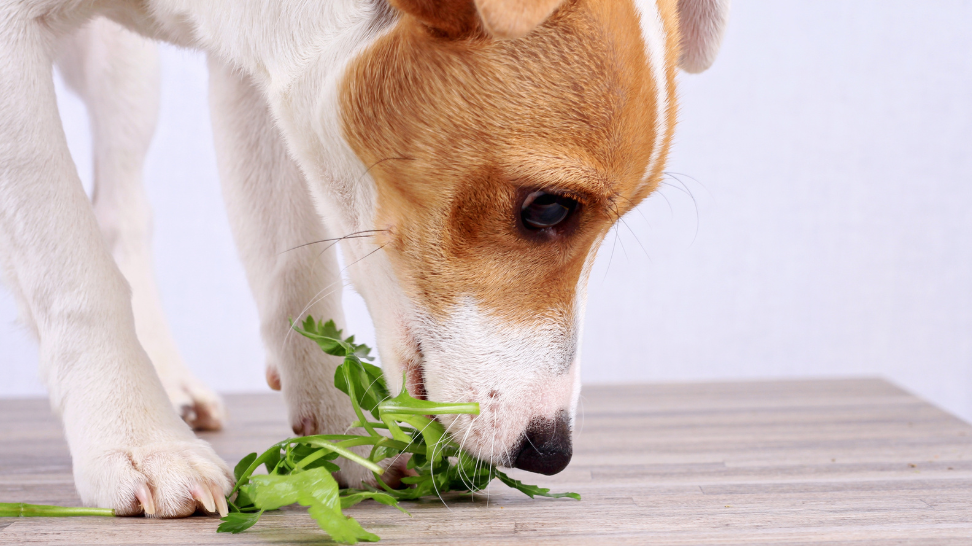Plant-based diets have gained popularity in recent years for their numerous health benefits and reduced environmental impact. As pet owners become more conscious of their own dietary choices, it’s no wonder some may consider the advantages of plant-based diets for their canine companions as well. This article will discuss why vegan dog food is superior to meat-based fresh dog food and raw dog food, which can come with ha wide range of health concerns.
Problems with Meat-Based Fresh Dog Food
Meat-based fresh dog food may seem like a healthy option for your furry friend, but there are several issues to consider.
Fresh meat-based dog food has gained popularity over kibble due to its perceived higher quality, more natural ingredients, and the belief that it provides a diet closer to what a dog’s ancestral relatives would have consumed in the wild. For a long time, dogs were thought of as carnivores. Their ancestors, the wolves, certainly were, so it is often assumed that today’s dogs also need meat. However, studies have shown that dogs have evolved into omnivores throughout centuries of domestication. They are now fully capable of digesting starches and getting all the nutrients they need from plant sources.
It’s important to consider the health risks associated with meat-based diets for dogs. Fresh meat can be contaminated with harmful bacteria, posing a risk of foodborne illness for both dogs and humans handling the food.
Moreover, some dogs may have allergies or intolerances to certain animal proteins, causing gastrointestinal issues or skin problems. In fact, animal proteins such as chicken, beef, and eggs are the most common allergies in dogs. Meat-based diets can also be high in fat, leading to obesity and other health complications, such as heart disease and diabetes.
The quality of the ingredients in meat-based fresh dog food may also be a concern. While it is often marketed as containing higher-quality, natural ingredients compared to kibble, it can still include lower-quality meat sources or even by-products. Additionally, the freshness and safety of the meat in these diets may not always be guaranteed, depending on factors like storage, transport, and handling.
Feeding dogs meat-based food also contributes to the suffering and exploitation of animals in the meat industry, raising ethical concerns about animal welfare. Additionally, meat production is resource-intensive, requiring large amounts of water, land, and energy. The industry is a significant contributor to greenhouse gas emissions, deforestation, and habitat loss. By choosing meat-based dog food, pet owners may unintentionally exacerbate these environmental issues.
Problems with Raw Dog Food
Raw dog food is another option pet owners might consider, but it comes with additional challenges. The risk of bacterial contamination and foodborne illnesses is even higher in raw dog food, as harmful pathogens like Salmonella and E. coli can thrive in uncooked meat. For this reason, preparing and storing raw dog food can be challenging, requiring extra care and attention to ensure safety and freshness.
Nutritional imbalances are also a concern, as providing the right combination of nutrients in a raw diet can be difficult. This is especially true in homemade variants. According to a study at the University of California, Davis, School of Veterinary Medicine, homemade pet food may be risky. Jennifer Larsen, lead author of the study, said:
“It is extremely difficult for the average pet owner — or even veterinarians — to come up with balanced recipes to create appropriate meals that are safe for long-term use.”
Advantages of Plant-Based Dog Food
In contrast, plant-based dog food offers several advantages. Health benefits for dogs on a vegan diet include a lower risk of heart disease, cancer, and other chronic conditions. Better digestion and weight management are also possible, thanks to the lower fat content and higher fiber usually found in plant-based diets.
Because plant-based dog food contains no animal products, neither raw nor cooked, the risk of bacterial contamination is significantly reduced. By getting rid of possible sources of harmful bacteria, vegan dog food offers a safer and cleaner choice for your pet’s meals, and you can relax knowing that you’re giving your furry friend a healthy and safe food option, which lowers the chances of foodborne illnesses for everyone in your home.
Ethical and environmental benefits further support the choice of vegan dog food. Plant-based dog food promotes environmental conservation and animal welfare by reducing animal suffering and lowering the carbon footprint associated with meat production. Additionally, vegan dog food often includes a broader range of natural ingredients and nutrients, offering your pet a diverse and balanced diet.
Why PawCo is a Good Choice for Fresh Vegan Dog Food
PawCo provides a complete and balanced plant-based dog food that meets all your dog’s nutritional needs. Made with high-quality, natural ingredients, PawCo’s fresh vegan dog food complies with AAFCO safety and quality standards. Not only is it nutritious, but PawCo’s dog food also has a delicious and appealing taste that dogs love.
Conclusion
While meat-based fresh and raw dog food options may be marketed as a great diet choice, fresh vegan dog food offers a healthier and more eco-friendly alternative for your furry friend. Plant-based dog food is the superior choice with numerous health benefits, ethical considerations, and environmental advantages.
PawCo’s fresh vegan dog food provides a complete and balanced diet that meets all your dog’s nutritional requirements while supporting a sustainable and compassionate lifestyle. Considering switching to plant-based dog food for your pet’s well-being and the well-being of our planet? Place your first PawCo order today!
